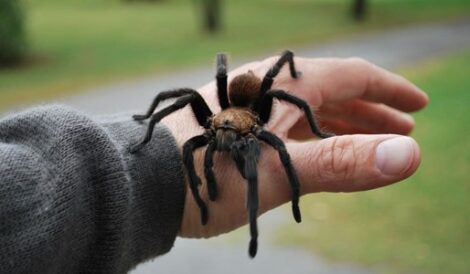- Posted on
Physical Punishment of Children: What are the Consequences?
Parents can at times find themselves in a stressful situation with their children, this might, in turn, lead them to find a quick solution such as spanking to solve the problem their child might be causing. However, it has been suggested by professionals and scientists that corporal punishment is not the best way to correct misbehavior in children, if it cannot be ceased, it should be reduced to limited situations.
In a study by Strauss and Stewart in 1999, ninety-five percent of parents utilized physical punishment in children aged three to four and 50% in children aged from twelve to fourteen. Additionally, in another study conducted in 2019 by Finkelhor and colleagues, the researchers found that 49% of parents spanked children from the age of zero to nine and 23% of children aged 10-17. The aforementioned data indicate how after 24 years parents have decreased the option of physical punishment in children probably due to the advancement in scientific data suggesting how it can be harmful to the brain development of children.
- Spanking seems to slow down intelligence development in children because as a result, it can decrease the development of the grey matter in the brain which is linked to intelligence and learning skills, this can in turn lead to slower IQ development in children.
- It has been suggested in a study conducted by Strauss in 1997 that spanking is highly correlated (not caused) with antisocial behavior in children, such behaviors involve cheating, lying, or disobeying teachers. It might be crucial to determine in future studies whether this antisocial behavior presented in children which might translate into oppositional defiant disorder or conduct disorder can evolve into an adult antisocial personality disorder.
- In another study by Strassberg and colleagues in 1994, researchers found that children who were often being physically punished at home were more likely to bully their peers at school.
- Afifi and colleagues 2017 conducted a study on how spanking in children can alter mental health in later adulthood. Interestingly, children who often get spanked develop similar health outcomes to children who are abused emotionally and physically. The findings suggest that children who are more often spanked are prone to develop suicide attempts, heavy drinking, and other heavy drugs.

There are alternative techniques to spanking, and yes, children need boundaries to learn education, but this does not mean physical punishment is going to educate children.
- Set up rules and stick to them, every child will test the limits, the more you allow him or her to do, the further he will test and the harder the behavior will be to manage in the future.
- Inform your child of the consequences if your rules are being broken or tested, whether it is no TV, no night out with friends, or no cell phone.
- Stay consistent with your warnings and consequences, do not only use warnings one after another and then not follow the consequences, this is where your child is testing the limits and you are allowing him or her to misbehave.
- Explain to your child why certain behaviors are not accepted.
- Reward your child when he or she is behaving well, praising your child encourages them to pursue good manners.
Corporal punishment has been utilized for decades, however, with the information, we have in hand today we now know how it can impact our children in several negative ways. Instead, it is crucial to utilize different healthier tools to encourage good behavior in children. Thus, peaceful parenting which does not mean permissive but rather informative and encouraging to their child is pivotal for healthy development in children.
By Marta Padron Pena, Mental Health Intern
References
https://www.psychologyinaction.org/2021-4-20-tbd/
Afifi, T. O., Ford, D., Gershoff, E. T., Merrick, M., Grogan-Kaylor, A., Ports, K. A., MacMillan, H. L., Holden, G. W., Taylor, C. A., Lee, S. J., & Peters Bennett, R. (2017). Spanking and adult mental health impairment: The case for the designation of spanking as an adverse childhood experience. Child abuse & neglect, 71, 24–31. https://doi.org/10.1016/j.chiabu.2017.01.014
Durrant, J., & Ensom, R. (2012). Physical punishment of children: lessons from 20 years of research. CMAJ : Canadian Medical Association journal = journal de l’Association medicale canadienne, 184(12), 1373–1377. https://doi.org/10.1503/cmaj.101314
Stormshak, E. A., Bierman, K. L., McMahon, R. J., & Lengua, L. J. (2000). Parenting practices and child disruptive behavior problems in early elementary school. Conduct Problems Prevention Research Group. Journal of clinical child psychology, 29(1), 17–29. https://doi.org/10.1207/S15374424jccp2901_3
Straus, M. A., & Stewart, J. H. (1999). Corporal punishment by American parents: National data on prevalence, chronicity, severity, and duration, in relation to child and family characteristics. Clinical Child and Family Psychology Review, 2(2), 55–70. https://doi.org/10.1023/A:1021891529770
https://www.psychologytoday.com/ca/blog/the-me-in-we/201202/how-spanking-harms-the-brain
Straus, M. A., Sugarman, D. B., & Giles-Sims, J. (1997). Spanking by parents and subsequent antisocial behavior of children. Archives of pediatrics & adolescent medicine, 151(8), 761–767. https://doi.org/10.1001/archpedi.1997.02170450011002



